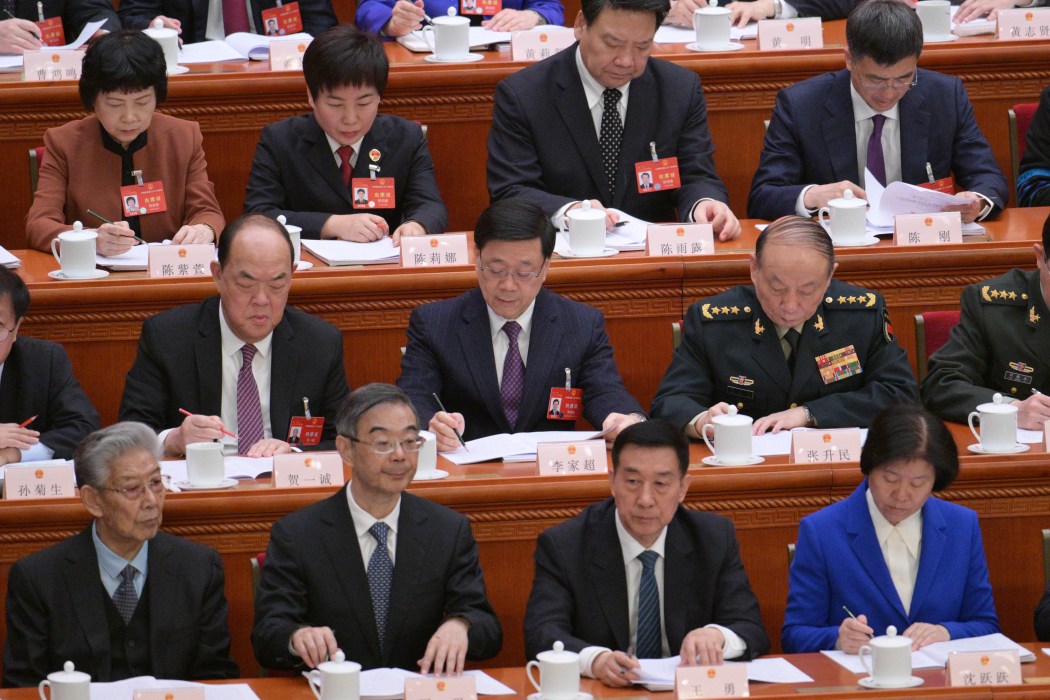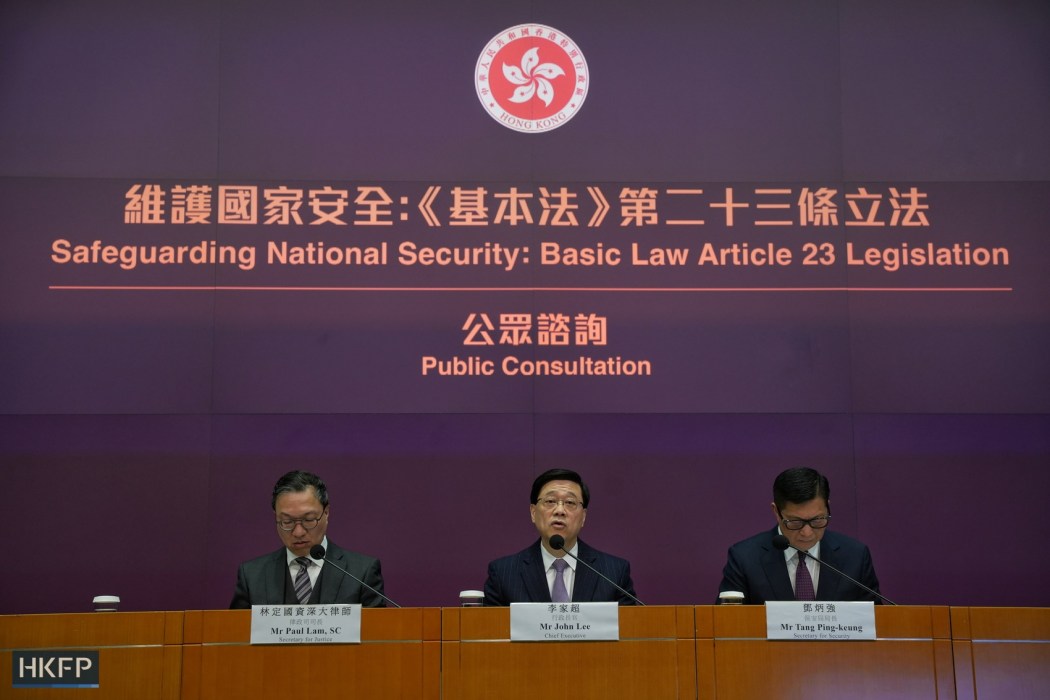Hong Kong should continue implementing the governing principles of “One Country, Two Systems” and “patriotic administration,” China’s Premier Li Qiang has said during a key political meeting in Beijing.

Speaking on Tuesday at the Two Sessions meeting, an annual gathering of Beijing’s top political elites, Li delivered his work report before National People’s Congress (NPC) delegates at the Great Hall of the People.
“We shall fully, accurately, and firmly adhere to the principles of ‘one country, two systems,’ ‘Hong Kong people administering Hong Kong’… and ‘a high degree of autonomy,'” he said in Mandarin, referring to three terms about the city’s governance model in the Basic Law.
Among those in attendance at the yearly meeting were Chief Executive John Lee and the city’s lawmakers who are delegates to the NPC, including Ma Fung-kwok and Stanley Ng.
“[We shall] adhere to governing Hong Kong [and Macau] in accordance with the law, as well as the principle of administering Hong Kong [and Macau] by patriots,” Li said.
In March 2021, Beijing passed legislation to ensure “patriots” govern Hong Kong. Since then, the city’s legislative and local elections have been overhauled so that only those deemed “patriots” can take office.

Li added that Beijing would support Hong Kong in developing its economy and improving residents’ livelihood, as well as to “better integrate into the overall plan of national development.”
See also: What are China’s Two Sessions? The annual parliamentary meetings explained
Li did not read out a line stating that Hong Kong was encouraged to “give full play to its advantages and characteristics and actively participate in the construction of the Guangdong-Hong Kong-Macau Greater Bay Area” during his speech on Tuesday. The line, however, was included in the full speech uploaded to the Chinese government website.
‘Uplifted’ by Li’s speech
Hong Kong’s leader John Lee, who attended the meeting in Beijing, said he “felt uplifted” after listening to Li’s speech. The chief executive told reporters on Tuesday afternoon that he was grateful for Beijing’s support of the city and would continue to uphold the principle of “patriots’ administering Hong Kong.”

He added that the Hong Kong Jockey Club had signed agreements with China’s National Health Commission which would regulate the transfer of medical personnel across the border, without giving further details on the matter.
Lee was also asked when Hong Kong’s impending domestic security law would be brought to the legislature for lawmakers to discuss.
Under Article 23 of the Basic Law, the city is obliged to pass local security legislation criminalising national security offences. The legislation is separate from the Beijing-imposed security law, which was enacted in June 2020 after the anti-extradition protests and unrest.
Lee said that the authorities were handling views submitted by the public during the one-month consultation period which ended last Wednesday, and that he had instructed the government to speed up the drafting of the law.

“Once the government is ready, we will submit [the bill] to the Legislative Council,” Lee said in Cantonese. “And I hope that the legislature will cooperate, and bear in mind to complete [the legislation] as soon as possible.”
Earlier, Lee vowed that the law would be passed within the year.
Xia Baolong, the director of the Hong Kong and Macao Affairs Office, reportedly told the city’s representatives at the Two Sessions on Monday that the legislation should not be further delayed.
In 2003, the last time Hong Kong attempted to pass Article 23, as the law is colloquially known, an estimated 500,000 people took to the streets in protest. The bill was then shelved indefinitely.
Xia said that the legislative attempt for the security law had taken more than 26 years and urged the city to complete the legislation promptly, according to Ming Pao.
Support HKFP | Policies & Ethics | Error/typo? | Contact Us | Newsletter | Transparency & Annual Report | Apps
Help safeguard press freedom & keep HKFP free for all readers by supporting our team

LATEST FROM HKFP
HKFP has an impartial stance, transparent funding, and balanced coverage guided by an Ethics Code and Corrections Policy.
Support press freedom & help us surpass 1,000 monthly Patrons: 100% independent, governed by an ethics code & not-for-profit.










